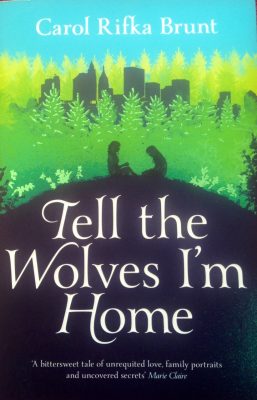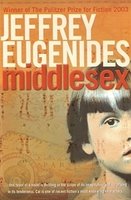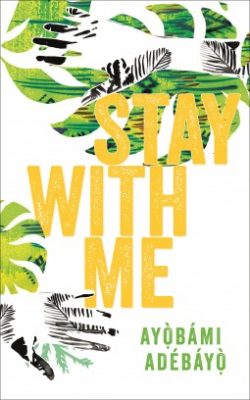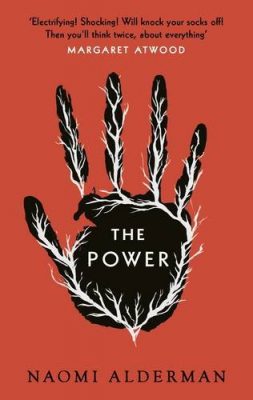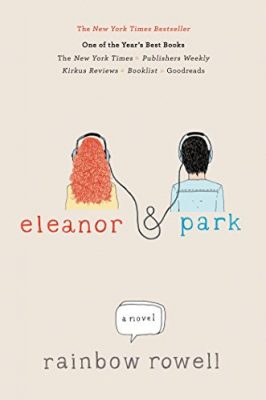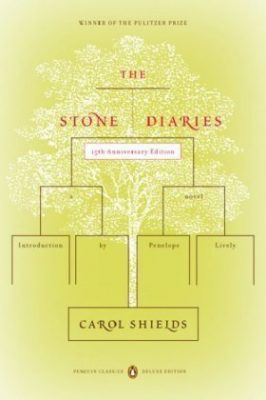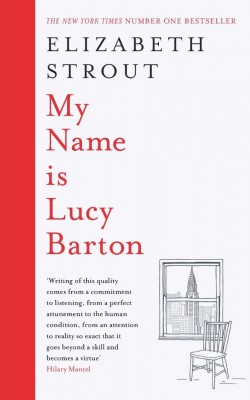Born into shame and illegitimacy during World War II and raised by an adoptive mother who took every opportunity to crush her spirit, the heroine of this novel, Molly Bolt, knows what she wants from an early age: to never marry, to get an education, to make movies, and to sleep with women. Rubyfruit Jungle follows her journey from bigoted poverty in rural Pennsylvania and Florida, through numerous setbacks, to her eventual graduation from university in New York.
Continue reading Rubyfruit Jungle
In the mid-80s, in New York, a man is dying of AIDS. To most of the world he’s a famous artist, but to our fourteen-year-old heroine June, he’s her beloved uncle Finn. Before he dies, Finn paints once last painting, a portrait of June and her sister Greta; being the perfectionist that he is, he dies still dissatisfied with it. Then, at his funeral, June sees a strange man outside watching her and Greta.
Continue reading Tell the Wolves I’m Home
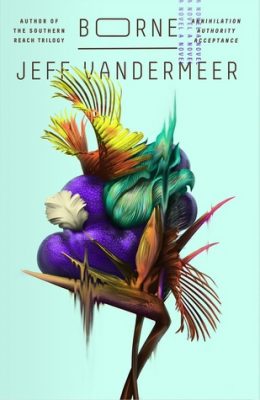
Borne is the new novel from Jeff VanderMeer, the David Lynch of literary sci fi. Don’t know what I mean? Let me give you an example by summarizing the events leading up to the action in this book. In a post-apocalyptic world devastated by climate change and other, unspecified man-made disasters, an unnamed, partially-destroyed city is dominated by a biotech company (known, of course, as the Company). It’s not clear exactly what the Company makes (drugs? weapons? designer pets?), but at some point it creates Mord, a thing which grows into a giant bear the size of a building (it’s described as being three storeys high lying down). Mord develops the power to levitate and escapes the Company, wreaking havoc and destroying what remains of civilization in the city. In this environment our protagonist, a black (yes!) woman (YES!) named Rachel (fine), pairs up with Wick, a disgraced former Company employee who now manufactures biological hallucinogens in the form of beetles you insert into your ear, in a converted swimming pool that he’s made into a kind of swamp teeming with artificial life. They live in an apartment complex camouflaged as a cliff face overlooking a toxic river, which they’ve booby-trapped with weaponised biochemistry and other deterrents against trespassers. To help Wick, Rachel works as a scavenger, searching for biotech that can go into his drug-swamp-brew. The most fruitful source of this is Mord himself, and while he sleeps, Rachel climbs around in his fur looking for anything salvageable. Then comes page one.
Continue reading Borne
In suburban Detroit, a young person has been raised as a girl as far as puberty, when gradually she (as she identifies at the time) and her family begin to realise that that might not be what she is at all. As Calliope (“Cal”) begins to develop more masculine characteristics, she also begins to learn that she will have to create her own place in society as neither male nor female.
…is what I thought I’d be getting with this book. Continue reading Middlesex
In 1980s Nigeria, a young married woman, Yejide, tries and fails to become pregnant. It’s a time of political upheaval: over the course of the novel, several coups take place. It’s also a time during which modern (Western) medical practice enjoys an ongoing conflict with traditional remedies, as well as pseudo- or quasi-Christian practices in Southern Nigeria, where the novel takes place. The protagonist’s mother-in-law sends her to a “prophet” in an attempt to remedy her apparent infertility; when she eventually conceives and gives birth, only to have the child die in infancy, the mother-in-law openly suspects it of being abiku, an evil spirit.
Continue reading Stay With Me
What happens when an oppressed people suddenly gain a huge amount of power over their oppressors? What would a truly matriarchal global society look like? Are men and women born with certain inherent characteristics, or are they the result of social conditioning (surely we can agree that one’s stupid, right)? What if women were the physically stronger sex?
Continue reading The Power
Returning to live with her mother and siblings after a mysterious absence, Eleanor’s first day at her new school begins inauspiciously, when no one will let her sit next to them on the bus. Eventually, Park takes pity on her, and over a series of bus trips they gradually develop a friendship that turns into a romance. But Eleanor’s home life is less than idyllic, and forces beyond their control are building that will threaten to topple their fragile happiness.
Continue reading Eleanor and Park
In roughly our time, after failing to save the life of an actor who collapses on stage, a trainee paramedic in Toronto receives a phone call from his doctor buddy at the hospital, telling him to lock himself in with some bottled water: a passenger from Russia has landed and is spreading a flu-like virus with a super-fast incubation period and nearly 100% transmission rate.
Twenty years later, civilization has collapsed. There is no electricity, no internal combustion engine, no modern medicine. In the Great Lakes region of North America, a group of actors and musicians walks along the abandoned road, bringing art and culture to the sparse settlements of survivors. Their motto is taken from Star Trek: Voyager: Survival is Insufficient.
Continue reading Station Eleven
The autobiography of a fictional character, this novel charts the significant periods in the life of one Daisy Goodwill, born in 1905 in rural Manitoba. The novel dedicates one chapter apiece to birth, childhood, marriage, motherhood, etc, right up to (and including) death, which you have to admit is an unorthodox choice for a novel purportedly narrated by the protagonist (though often not in the first person).
Continue reading The Stone Diaries
Guys. You guys. This book.
I don’t even know what to say about it. I read it on my Kindle, which lets me highlight sections; usually I use this feature to highlight things I think are significant, that I can come back to at the end to help me understand the book as a whole. At a certain point while reading this book, I realised I was highlighting on just about every second page. Every sentence, almost, seems weighed down with significance. Yet somehow, the touch of the author is so light, feather-light, so fragile, that it seemed the book might come apart if I breathed wrong.
Continue reading My Name is Lucy Barton

